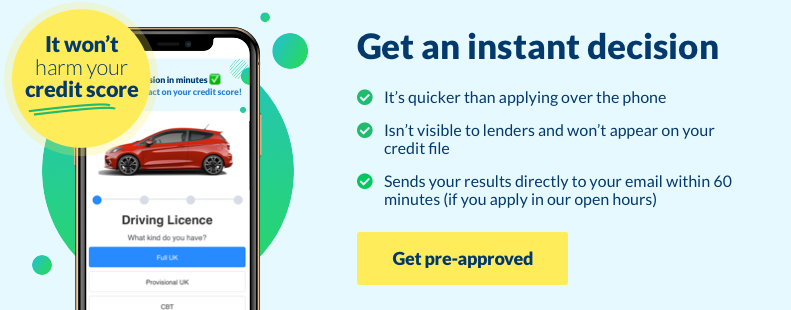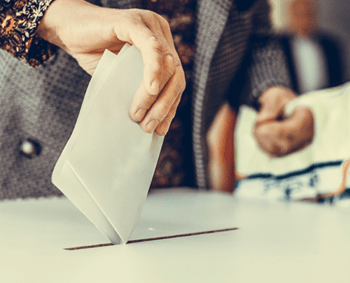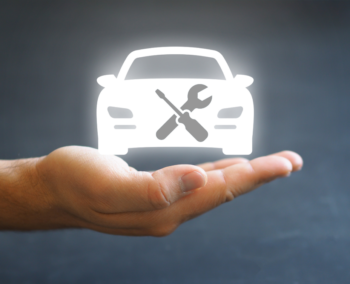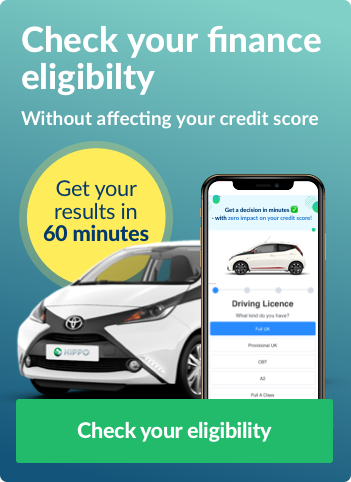
Lease purchase is one finance option with low monthly payments that helps you plan the costs of your car or van ownership.
What is lease purchase?
With lease purchase (LP), you can finance a car by spreading the cost over a period of years. At the end of the agreement, you pay a final sum and either keep the vehicle or exchange it.
Like hire purchase and PCP, lease purchase can involve paying a deposit at the start followed by an agreed term of monthly payments.
How does lease purchase work?
Lease Purchase works very similarly to PCP, spreading the cost of the car over an agreed period of time with fixed monthly payments.
However, at the end of the lease purchase term, you must pay the lump sum balloon payment. After that, you can either keep the vehicle or part exchange it.
The start of the agreement
Firstly you can choose to put down a deposit (often known as an advance payment) against the car. The bigger the deposit, the lower your monthly payments will be.
After that, you make monthly repayments, including interest for the rest of your agreement. Typically, this runs from 24 – 60 months.
Monthly instalments are usually lower than other types of finance too, because – like PCP – they only cover part of the value of the car.
The end of the agreement
Up until this point, lease purchase works like PCP. However, at the end of a lease purchase agreement, you must pay the balloon payment.
This is a deferred payment and based on the estimated future resale of the car from when you first took out the agreement.
After you’ve settled the finance, you can either choose to keep the car or part exchange it.
Owning the car
Once all the repayments have been made, and you’ve made the final balloon payment at the end of the agreement, the car is signed over to you, and you become the legal owner.

If you don’t wish to keep the car, you can pay off the final fee and part exchange it for a new one.
Until that time, the car remains the property of the finance company.
Pros and cons of lease purchase
Like any financial decision, there are pros and cons to taking out a lease purchase agreement.
Pros
- No or relatively low deposit required
- Lower monthly payments, as the balloon payment is deferred
- You can choose the length of the finance agreement
- Own the car once all the payments have been made
Cons
- Failure to make payment means the car could be repossessed
- Large lump sum payment required at the end of the agreement
- No option to return the car at the end of the agreement
- If you want to part exchange your vehicle and it’s worth less than the future value, the deficit will be added to your new finance agreement
Used vs new car lease purchase
Lease purchase agreements are available for new and used cars and even vans, so it really depends on what you’re looking for and your financial circumstances as to which option you go for.
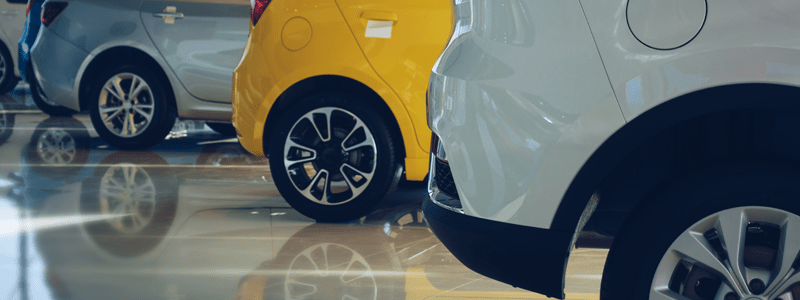
However, one of the main benefits of lease purchase is that lower payments allow you access to a higher quality car.
In fact, the better the car is at holding its value, the lower your monthly payments will be.
So, if you’re looking for a used car lease, either a high-end vehicle or one which will retain its value would be the best option.
Whichever you choose, remember at the end of the lease purchase agreement, you’ll either need to keep the car or part exchange it.
If the idea of owning a newer model car with more features and cleaner emissions appeals to you, a lease purchase could make it more affordable.
Getting hold of a used car on lease purchase also may limit your options.
You should also factor in that there could be increased costs such as more frequent repairs when you choose a used car rather than new or nearly new.
How to get the best lease purchase deal
With any form of car finance, a good way to make sure you’re getting the best deal is to work out the total cost that you’ll pay over the entire contract. And that’s no different with a lease purchase deal.
Factor in your initial deposit, monthly payments and the final balloon payment needed to repay the car.
It can be beneficial to play around with the length of the term because it’ll change the overall cost of the deal.
Generally, lease purchase contracts run from two to four years, but you can get ones over a longer or shorter period.
Although bear in mind, the shorter the term, the greater your monthly payments are likely to be.
Typically, the best offers for lease purchase are with the dealership you’re going to purchase from. You could find deals there, such as deposit contributions, which will help bring your payments down.
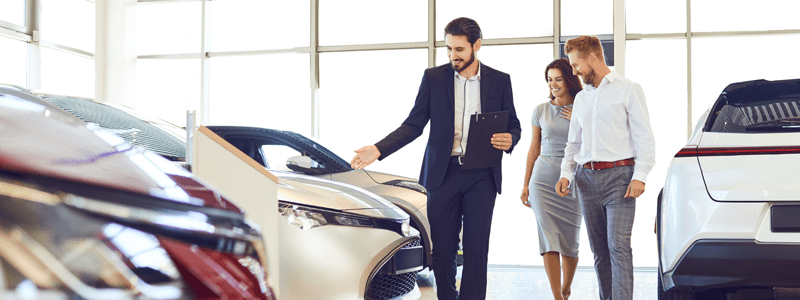
Although you can still get a lease purchase agreement with a less-than-perfect credit score, having good or excellent credit will always get you the best finance deal.
If you don’t, it may be worth waiting to work on bringing your score up before you apply for a lease purchase deal.
Learn more: Visit our bad credit hub to learn more about financing a car when you’ve suffered financial difficulties.
Other options
There are many different car finance options out there, so before you decide, make sure you know what’s available.
The main alternative finance options – other than saving up and buying your car outright, are:
Hire purchase (HP)
HP is another form of car finance at the end of which you own the car. The difference between HP and LP is that the monthly payments are usually much bigger.
HP allows you to spread payments for your car over a period of two to five years. After putting down a deposit (if you want to), you repay the balance plus interest through an agreed term of monthly instalments.
When the agreement comes to an end, the car is signed over to you and you become the legal owner.
Read: What is hire purchase and how does it work?
Personal Contract Purchase (PCP)
PCP is very similar to lease purchase. It allows you to spread payments for your car over a long period of time (usually two to four years).
However, the difference with a PCP deal is when the term ends. While you do still make monthly repayments, you don’t have to pay to own the car outright at the end of the agreement.
You have a choice between making the lump sum payment to own the car, part exchanging the car or simply handing it back.
Read: What is personal contract purchase and how does it work?
Personal Contract Hire (PCH)
PCH is another form of personal leasing, which works like a car rental over a longer period of time. You pay an initial amount (again, if you want to) and monthly instalments to lease the car for an agreed amount of time.
When the contract comes to an end, you can either hand the car back or lease another car.
Personal loan
A personal loan is where you borrow an amount of money from a lender (usually a bank or building society) and pay it back over a fixed amount of time along with interest.
The sum is transferred into your bank, and you can then effectively treat it as if it were your own cash to purchase a car outright.
Read: What is the best way to buy a new car?
How are lease purchase payments calculated?
Lease purchase works on lower monthly payments because a percentage of your borrowing money is deferred until the end of the term.
That deferred payment is calculated on the estimated future resale value of the car (often known as the Guaranteed Minimum Future Value).
The monthly payments are calculated by estimating the car’s depreciation while using it and adding on the interest.
Depreciation is the decrease in the car’s value due to age and use and is the sales price from when you first got the car minus the Guaranteed Minimum Future Value.
Once your annual mileage has been determined, the Guaranteed Minimum Future Value is calculated.
You then agree to pay a deposit and how long you want the agreement to run for. Your monthly payments will be split evenly over that term.
When it comes to the end of the contract, you pay what’s left over in order to own the car – the balloon payment.
Additional costs
As lease purchase is traditionally used to purchase newer cars, you can often find some of the costs for day-to-day running can be lower.
Costs such as car tax and fuel consumption can be cheaper on newer cars, so leasing a higher spec vehicle may be cost-effective over the long run.
Serious lease and finance companies, such as Hippo, also promise a warranty for every car, so even if you’re unlucky enough to have an issue, you’re largely covered by the warranty. You can also enhance your warranty for total peace of mind.
One larger and important cost you need to factor in is the final balloon payment. Although, monthly payments are usually lower with a lease purchase, allowing you to free up funds to put aside to use for the payment at the end of the agreement.
Cancellations
It’s possible to cancel your lease purchase agreement, but you’d need to pay a settlement fee.
This includes the amount still left to pay and, more than likely, the interest you’d have paid if the agreement had run to the end of the term.
There may be an option to part exchange the vehicle to cover the settlement fee. However, if the vehicle is worth less than the fee, you’d have to make up any difference.
Another option is to ask to terminate the agreement and return the vehicle voluntarily. However, you’d have to have paid off 50% of the total finance amount before requesting this option, and it can often work out to be more expensive.
Read: What is a voluntary termination of car finance and can you end an agreement early?
Risks of lease purchase
As lease purchase is a secured loan, if your financial circumstances change for any reason, and you can’t keep up with your repayments, the car can be repossessed.
Until all the monthly payments along with the balloon payment have been settled, you don’t own the car.
The other risk with lease purchase is that the final payment can amount to thousands of pounds.
Regardless of how much the car is really worth, you’re liable for the agreed balloon payment, meaning you could lose out if you part exchange too.
In this case, you may have to refinance to cover the payment or alternatively see if you can extend the term further.
Check your eligibility
If lease purchase is the right finance option for you, you can see whether you’ll be approved for finance in minutes without affecting your credit score through our car finance eligibility checker.
